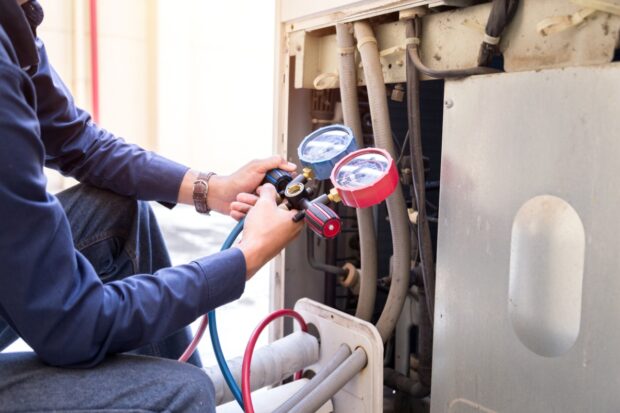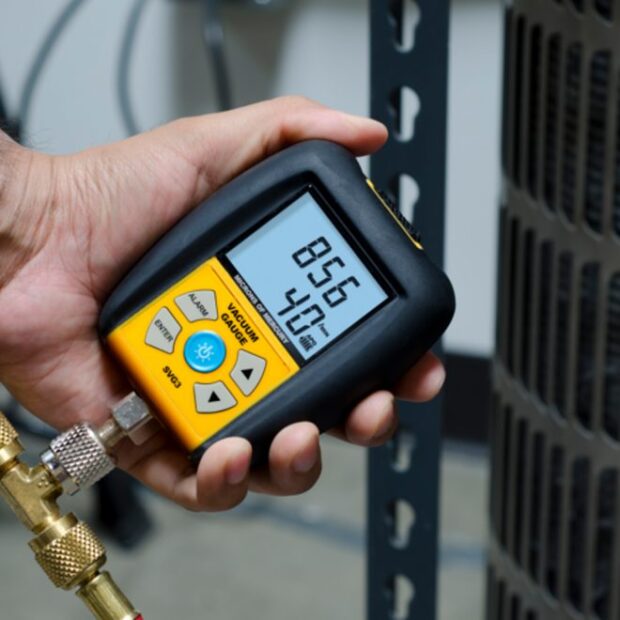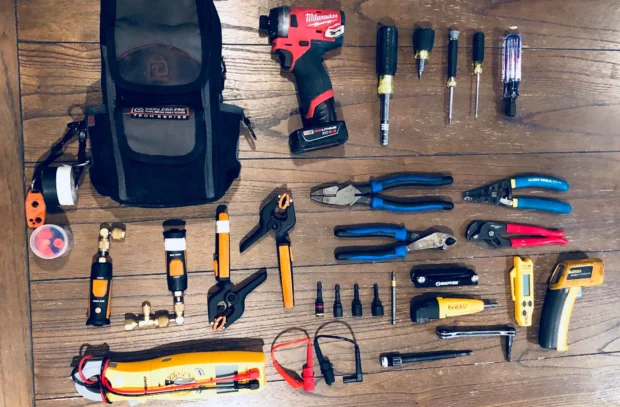HVAC is among the most in-demand trades in the construction industry today. It’s a lucrative business, particularly around peak seasons like winter and summer. It involves repairs, installation, and fixing other HVAC system issues. As such, you’ll need the right tools to deliver quality services.
Here are the essential tools for HVAC contactor
1. HVAC software
HVAC Software is one of the essential tools you’ll need as an HVAC contractor. It has features to streamline your tasks and helps you provide quality services.
The software will help you with the following tasks:
- Scheduling and dispatching: The software uses real-time data to schedule and dispatch your field team effectively.
- Optimizing routes: optimizing your field routes helps to save time and fuel, and fleet servicing expenses. With HVAC software, you dispatch your team to the client to use the shortest route.
- Invoicing: The software will help you create accurate, timely, and detailed client invoices.
- Customer management: The software helps you gather clients’ data, helping you provide personalized services. Also, it allows effective communication between you and the clients throughout the project.
2. Hand tools

-
Screwdrivers
Almost all HVAC systems will require screws. Therefore, it’s advisable to invest in good quality, multi-purpose screwdriver. You can get a flathead and a Philips-head if you can’t afford a complete range for starters.
-
Pipe wrench
The HVAC contractor needs a pipe wrench when working on systems with natural gas lines and plumbing connections.
-
Step ladder
Your technicians will use a step ladder to clean vents and other activities.
-
Wire strippers
Your team will use wire strippers to remove the protective coating of electrical wires. You’ll need it during installation, maintenance, repair, and other HVAC system tasks.
3. Specialty tools

-
Cordless drill
You’ll need a cordless drill when drilling anything in attics and crawlspace. The drill is reliable as it has no distance restrictions.
-
Extension cord
You’ll require power in places far away from electrical outlets. An extension cord will help you handle the power the technician needs.
-
Vacuum pump
The tool helps in sucking moisture and air out of the air conditioning lines. It would help if you had it to determine which line is leaking before you charge the system with refrigerant.
-
Thermometer
You’ll need a thermometer to determine if a piece is necessary or to add a refrigerant. A thermometer helps to take recordable readings and identify overheating compressors, breakers, or motors.
-
Manifold gauge
A manifold gauge is essential to inspect leaks in air lines, charge air conditioner units, and remove refrigerant.
4. Repair tools

-
Coil fin straightener
The tools help repair HVAC systems with bent coil fins.
-
Micron gauge
The tools measure the level of the vacuum air conditioning unit to affirm that it’s appropriate with the system.
-
Refrigerant scale
It aids you in measuring the weight of refrigerant as you remove or adds from the compressor. It assists you in ensuring the system has the appropriate amount to run effectively.
5. Safety tools

Safety tools include:
- Multimeter
- Googles
- Gloves
- Masks
- Protective overalls
Conclusion
You’ll need the best tools as an HVAC contractor. The devices will help to streamline your process and cut costs. Also, the tools will help you provide quality work to gain customers’ trust, satisfaction, and loyalty. Though numerous, the above are the essential tools you’ll need.
